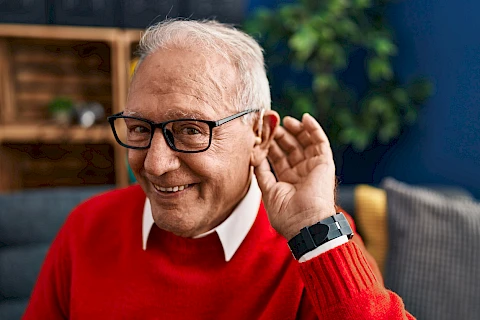
Age-related hearing loss is a common experience for many seniors, often causing frustration for both the individual and their caregivers. Recognizing the causes and symptoms of this condition helps ensure seniors can lead active, fulfilling lives. Awareness is necessary for seniors and their families, as understanding how to manage hearing loss can improve communication and quality of life.
Common Causes of Age-Related Hearing Loss
Age-related hearing loss, also known as presbycusis, can happen for various reasons:
- Natural aging of ear structures: Over time, the structures in the ear naturally undergo changes that affect hearing.
- Long-term exposure to loud sounds: Repeated exposure to loud environments, such as noisy workplaces or concerts, may gradually damage hearing.
- Genetic factors: Hearing loss can sometimes run in families, suggesting a hereditary link.
- Health conditions and medications: Conditions such as diabetes, high blood pressure, and certain medications can also contribute to hearing issues.
Recognizing Symptoms
Early identification of hearing loss can lead to more effective management. Common signs include:
- Struggling to follow conversations: Especially in noisy settings or when multiple people speak.
- Frequently needing to ask people to repeat themselves: If you find yourself saying "What?" often, it could be a sign of hearing loss.
- Turning up the volume on devices: If normal volume levels feel too quiet, it might indicate hearing loss.
- Experiencing ringing in the ears: This persistent sound, known as tinnitus, can be an early signal of hearing issues.
Available Treatments
Hearing loss can be managed with a variety of treatment options. The most common solution is the use of hearing aids, available in models like behind-the-ear, in-the-ear, and in-the-canal. These devices amplify sound to make everyday sounds more accessible.
Other assistive listening devices, such as personal amplifiers and alerting systems, can help in certain situations. For some individuals, medical interventions or therapies might be necessary. In cases where traditional hearing aids are not effective, cochlear implants may be an option.
Tips for Effective Communication
Living with or alongside someone with hearing loss requires patience and good communication strategies. For those experiencing hearing loss, it's helpful to choose environments with minimal background noise for conversations. Being open about your hearing loss can encourage others to speak clearly and at a moderate pace. Visual cues, such as facial expressions and body language, can also aid in understanding.
Support for Seniors With Hearing Loss
Age-related hearing loss is common, but it doesn’t have to limit one's quality of life. Understanding the causes and symptoms is the first step in effective management. Communication becomes more comfortable for everyone involved with the right tools and strategies.
If you or a loved one is facing hearing loss, don't hesitate to seek help. Contact Senior Helpers North Valley in Studio City, Glendale, Burbank, North Hollywood, and Los Angeles for guidance and support in navigating hearing loss challenges.